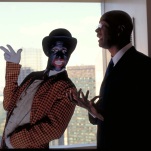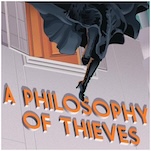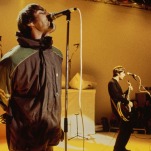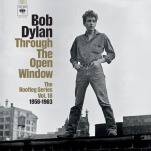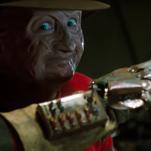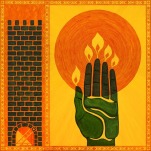God’s Not Dead and Noah Battled for Christian Cinema’s Soul 10 Years Ago

It is unclear how much of the money that Sound of Freedom made came from people buying a seat and then actually sitting in it, but the faith-based crypto-QAnon thriller inspired by the anti-child-trafficking exploits of a man accused of sexual assault and abuse by multiple woman sent a clear message last year: Faith-based cinema is still a lucrative market. In a post-pandemic exhibition space, no sensible capitalist can turn that down.
But Sound of Freedom, from the now-prolific Angel Studios, was explicitly adversarial, imbuing its characters with an unflinching righteousness and a doubt that conventional law and order (read: the Democrats) could save victims of trafficking. It’s a faith-based movie made with specific electoral optics in mind, and the growing zeal of right-wing fanaticism in the past decade bolstered its success (as did the realization that churches can exploit Pay It Forward campaigns on a scale big enough to purchase bigger box office returns). But 10 years ago, when two films grappling with ancient and modern faith landed near the top of the box office, the future of faith-based cinema was prophesied for all to see.
The Culture Wars have fatally wounded a great deal of online minds, but in 2014 the initial battles were just being fought. On the eve of Ben Shapiro, Jordan Peterson and Donald Trump dominating online discourse, Darren Aronofsky’s Noah and viral sensation God’s Not Dead landed at the first and fourth spots of the box office (God’s Not Dead released a week earlier and would peak at the third spot in its third week of release).
Even though they are drastically different beasts, both films seem quaint when viewed today. Noah adapts the trials of the Biblical Noah as he tries to save two of every animal and about seven humans from God’s wrathful flooding of an unclean world. The all-white cast—including Jennifer Connolly, Emma Watson, Logan Lerman, Ray Winstone and the daddy of 21st century epic cinema, Russell Crowe—is similar to more overtly religious revisionist Christian films of the 20th century. After all, Noah isn’t actually Christian, but an Abrahamic figure shared with Judaism and Islam.
The whiteness of a religious story that, arguably, white people came to last is a strange oversight from Aronofsky, and a thorn in the side of the lengthy film that unpacks the religious trial from a modern perspective. To Aronofsky, Noah’s prediction of a world engulfed by environmental catastrophe speaks to the director’s spiritual inklings, ones that had already been deftly explored in The Fountain and would later be clunkily emphasized in mother! It’s a noble vision for a filmmaker, and the fact he was given $125 million to explore it is worth celebrating. (Noah ended up raking in nearly $360 million dollars—a bonafide hit.)
-

-

-

-

-

-

-

-

-

-

-

-

-

-

-

-

-

-

-

-

-

-

-

-

-

-

-

-

-

-

-

-

-

-

-

-

-

-

-

-


